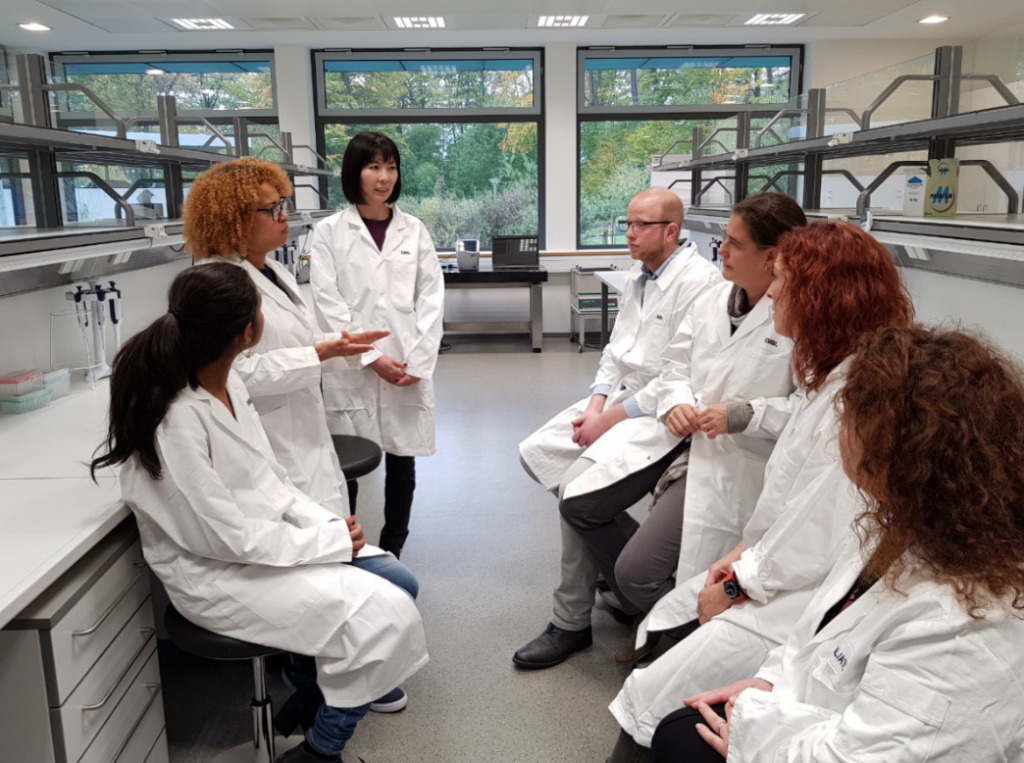7 tips to successfully deliver wet-lab-based training courses
Are you planning a wet-lab-based training course but don’t know where to start? There are so many things that could go wrong! After 6 years as a training lab manager at EMBL, I have seen it all. Here are some tips that could save you time, nerves and wasted lab consumables.

1. Identify your main contacts
Whilst the course organisers are the experts with regards to subject and course content, they are often very busy and trying to get hold of them can be a difficult task. Most of the time they will appoint an experienced colleague in their lab to help with the more practical and logistical aspects of organising the course. These people are the key players for my job – it is generally with them that I organise the practical set-up, because they know exactly what is needed, and when.
2. Timing is everything
Trainers are always surprised by how much longer people need in the lab for things they are doing for the first time. From my experience participants need twice as long in the lab as people who do the experiment regularly. So have this in mind when planning the schedule for a course. If possible, perform dry runs to get a better feeling of how long some experiments really take, and then double that time.
3. Back up, Back up, Back up
Not every experiment that we run during a course will be successful, but it is not the end of the world if you have prepared some back-up samples. The course days are already long enough – nobody wants to miss dinner to repeat a failed experiment, and troubleshooting is also a valuable lesson for the participants.
4. Everything clear?
Giving clear, coherent instructions is one of those things that sounds easy to do but in real life can actually be more complex, especially in a course setting. Some trainers don´t feel comfortable raising their voices to get everyone’s attention, meaning they have to repeat every single thing over and over again, which can cost valuable time.
5. Having good relationships to the main lab
You can plan a practical down to the smallest detail, but someone might still forget to tell you things like, “Oh, your incubator is actually too small to fit the instrument in there!” or “Oops! All my cells died over the weekend!”
In these situations it is key to have a good knowledge about who is doing what in the main lab and is willing and able to help out. Luckily my cheerful personality and baking skills have saved the one or other practical!
6. P p p poker face, p p poker face
As much as I love to have everything planned ahead of time, often this is not the reality when planning courses. Instructors often travel from abroad, and by the time they have arrived on-site, there are so many things that could go wrong. I refer to the first couple of days before the course starts as the “headless chicken mode”. But thanks to the experience and skill of our trainers, we always manage to overcome any difficulties that arise and are able to deliver our courses professionally – and the participants aren’t affected in the slightest!
7. Always be prepared for the unexpected
“It was working fine until this morning!”- This is one of the sentences nobody wants to hear during a course, but that is just how it is in the lab sometimes, and the training lab is no exception. You need to be a flexible thinker and be able to find a solution so the course can go on. Find a replacement instrument, shift the schedule around until the problem is solved. If there is no quick fix come up with another activity and cover the topic theoretically.
But to be honest in these cases I am so happy that I am doing this job at EMBL— because the EMBL people never let you down.